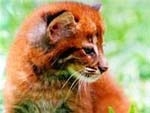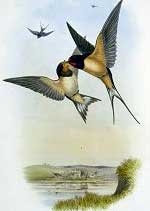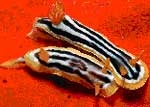American Scientists Discover Primates That Consume and Metabolize Ethanol Without Human Intervention
For the past 25 years, biologist Robert Dudley from the University of California–Berkeley (UC Berkeley) has been deeply interested in human alcohol consumption behavior. In 2014, he published a book proposing that our love for alcohol dates back millions of years when our primate ancestors were attracted to the aroma of ethanol, also known as ethyl alcohol, from ripe and nutritious fruits. Dudley referred to this idea as the “drunken monkey hypothesis.”
In a recent study published in the journal Royal Society Open Science last month, primatologist Christina Campbell and graduate student Victoria Weaver from California State University, Northridge (CSUN) reported that they have found the first evidence supporting Dudley’s hypothesis.
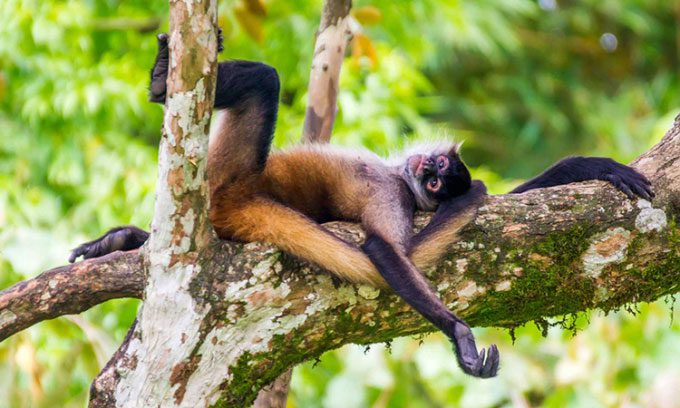
Black-handed spider monkey resting on a tree. (Photo: Kryssia Campos)
Campbell and Weaver conducted a field trip to Barro Colorado Island in Panama, a location often visited by Dudley, to explore the role of ethanol in the diets of animals. They collected fruit remnants discarded by the black-handed spider monkeys (Ateles geoffroyi) after eating and found that these remnants contained alcohol concentrations—byproducts of the natural fermentation process in ripe fruits—ranging from 1% to 2%, which is about half the concentration found in low-alcohol beers.
Moreover, the research team continued to collect urine samples from these wild monkeys and discovered that it contained secondary metabolites of alcohol. This indicates that black-handed spider monkeys are indeed using ethanol for energy.
“For the first time, we can demonstrate that primates consume ethanol without human intervention,” Campbell emphasized. “Black-handed spider monkeys can eat fruits containing ethanol to obtain calories, as fermented fruits provide more calories than unfermented ones. More calories mean more energy.”
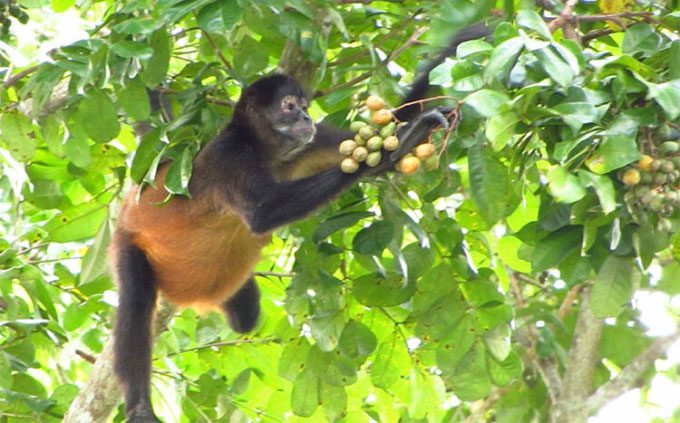
Black-handed spider monkeys selecting ripe fruits containing ethanol for higher caloric intake. (Photo: Victoria Weaver)
Although Dudley named his hypothesis the “drunken monkey hypothesis,” he suspects that these monkeys do not become intoxicated like humans do, as their stomachs would be filled with food before reaching a state of drunkenness. However, ethanol may provide primates with physiological benefits, such as a potential antibacterial advantage in the foods they consume.
Campbell further noted that the high caloric demands of monkeys might have influenced the decisions of human ancestors when selecting fruits to consume. Our ancestors may have prioritized fruits that contained more ethanol because they offered more calories. However, this is just one study, and more evidence is needed to confirm these findings.








































